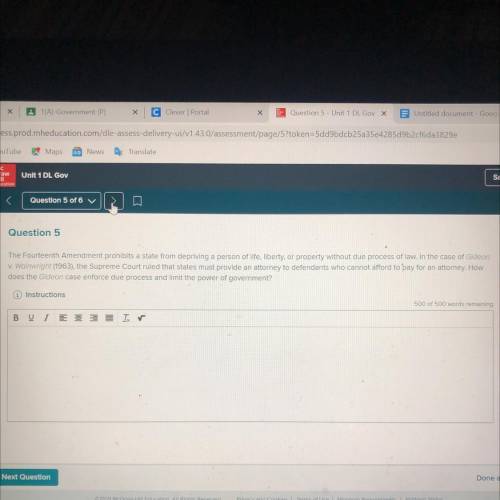
Social Studies, 25.02.2021 22:00 isabellemdeakin
The Fourteenth Amendment prohibits a state from depriving a person of life, liberty, or property without due process of law. In the case of Gideon
v. Wainwright (1963), the Supreme Court ruled that states must provide an attorney to defendants who cannot afford to pay for an attorney. How
does the Gideon case enforce due process and limit the power of government?


Answers: 2
Another question on Social Studies

Social Studies, 22.06.2019 03:00
•favored a limited national government • opposed a national bank • was supported primarily by farmers, artisans and skilled workers the box above best describes which political party that was formed in the united states in the 1790s? a. democratic-republican b. whig c. populist d. federalist
Answers: 1

Social Studies, 22.06.2019 07:00
What was the midwest states often called because they were located in the center of the nation
Answers: 1

Social Studies, 22.06.2019 21:30
In what way was family life impacted by industrialization? a. there was a rise in the middle class. b. there was a decrease in the birth rate. c. women were not allowed to work in factories. d. families relied on farming for food supplies.
Answers: 1

Social Studies, 22.06.2019 21:40
"there will be differences in degree of mood elevation seen in depressed clients after receiving either cognitive-behavioral or psychoanalytic therapy."; in this hypothesis, mood elevation is the:
Answers: 1
You know the right answer?
The Fourteenth Amendment prohibits a state from depriving a person of life, liberty, or property wit...
Questions





History, 12.08.2020 04:01




Physics, 12.08.2020 04:01


Mathematics, 12.08.2020 04:01


History, 12.08.2020 04:01




Mathematics, 12.08.2020 04:01






